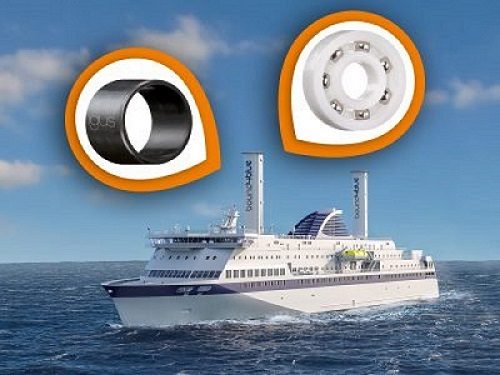Igus Helps Oil Tankers Become Ecologically Friendly Sailing Ships

Self-lubricating and maintenance-free plain and radial deep groove ball bearings from igus are part of a radically new type of maritime drive technology to reduce environmentally harmful emissions from international shipping.
Based in Barcelona, Spain, Bound 4 Blue, S.L. (bound4blue) has developed two unique autonomous rigid sails systems designed to be integrated onto a wide range of vessels and reduce environmentally harmful emissions from global shipping.
The bound4blue WINGSAIL and eSAIL systems are mounted on the deck of a ship and automatically align with the wind – similar to a classic sail. These complementary propulsion systems reduce the main engine power required and deliver fuel consumption and pollutant emissions reductions of up to 40 percent. The company ensures a payback period of under five years.
Corrosion-resistant and self-lubricating bearing technology reduces maintenance
Both bound4blue systems have been engineered to withstand the harshest conditions, including heavy loads, seawater, high humidity, and extreme temperatures, while at the same time reducing operational costs. These demands had to be met by the largest and the smallest components – such as the plain bearings.
The engineers at bound4blue incorporated cylindrical, plain bearings made of iglide X for the gear shafts and support rods of the sails. Compared to metal bearings, the polymer bearings do not corrode even in direct contact with seawater.
In contrast to metal bearings, shipping companies can also do without lubrication work. As an essential component in the igus materials, solid lubricants ensure that maintenance-free dry running is possible without a single drop of lubricating oil.
The pilot system, a sensor for measuring atmospheric pressure, also uses bearing technology from igus. Here the engineers at bounbd4blue rely on radial deep groove ball bearings of the xiros® B180 series.
The igus bearings also work without lubrication, are seawater resistant, and can be used in temperatures between -40 and +80 °C. One additional advantage is that bearings are approximately 60 percent lighter and up to 40 percent cheaper than comparable metal bearings.





